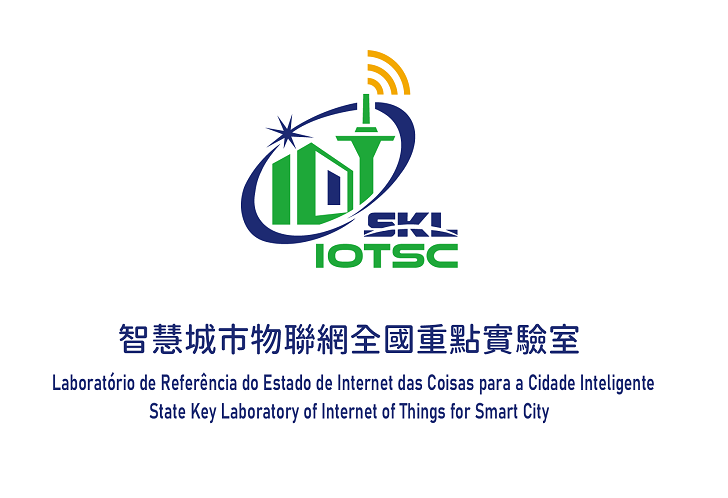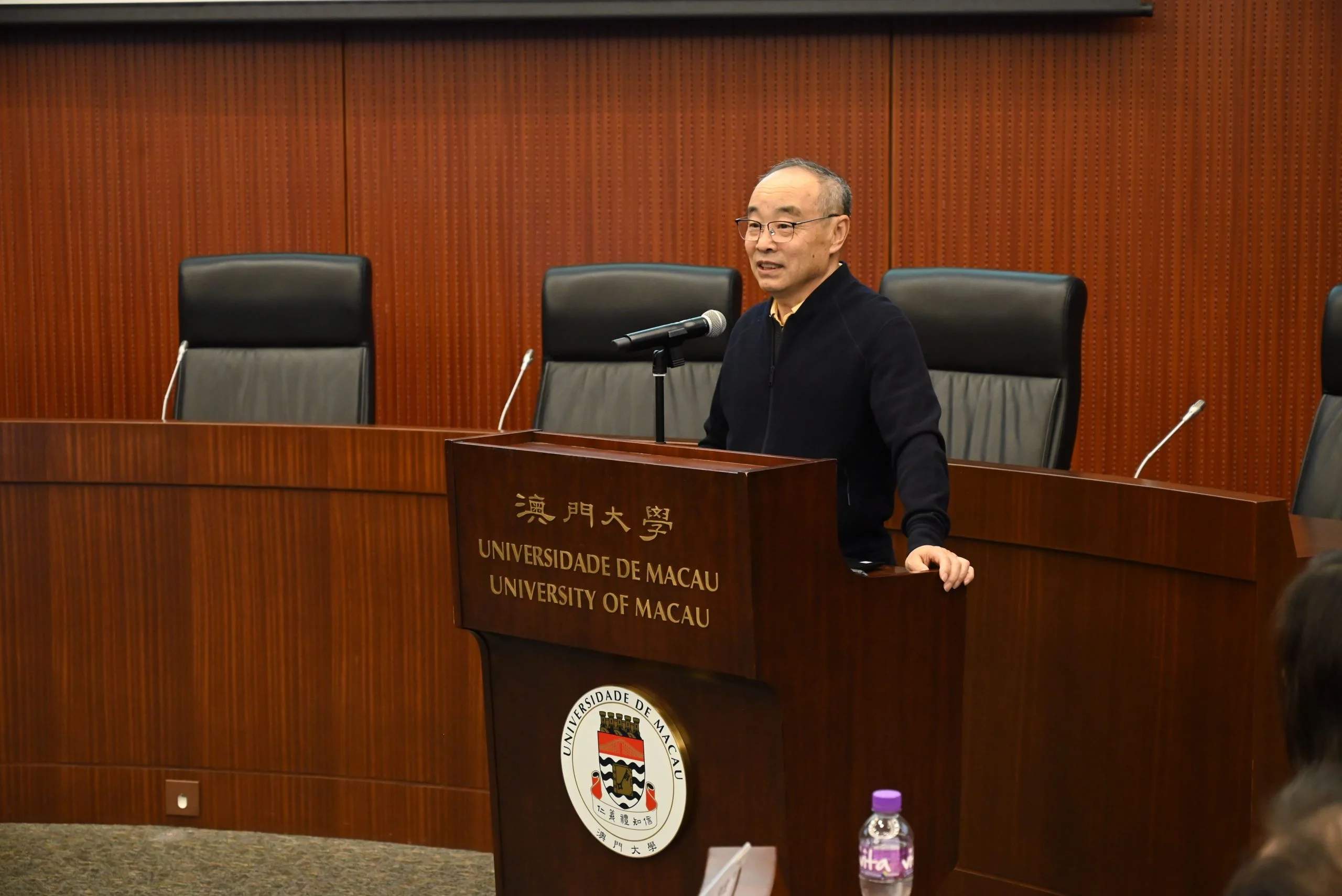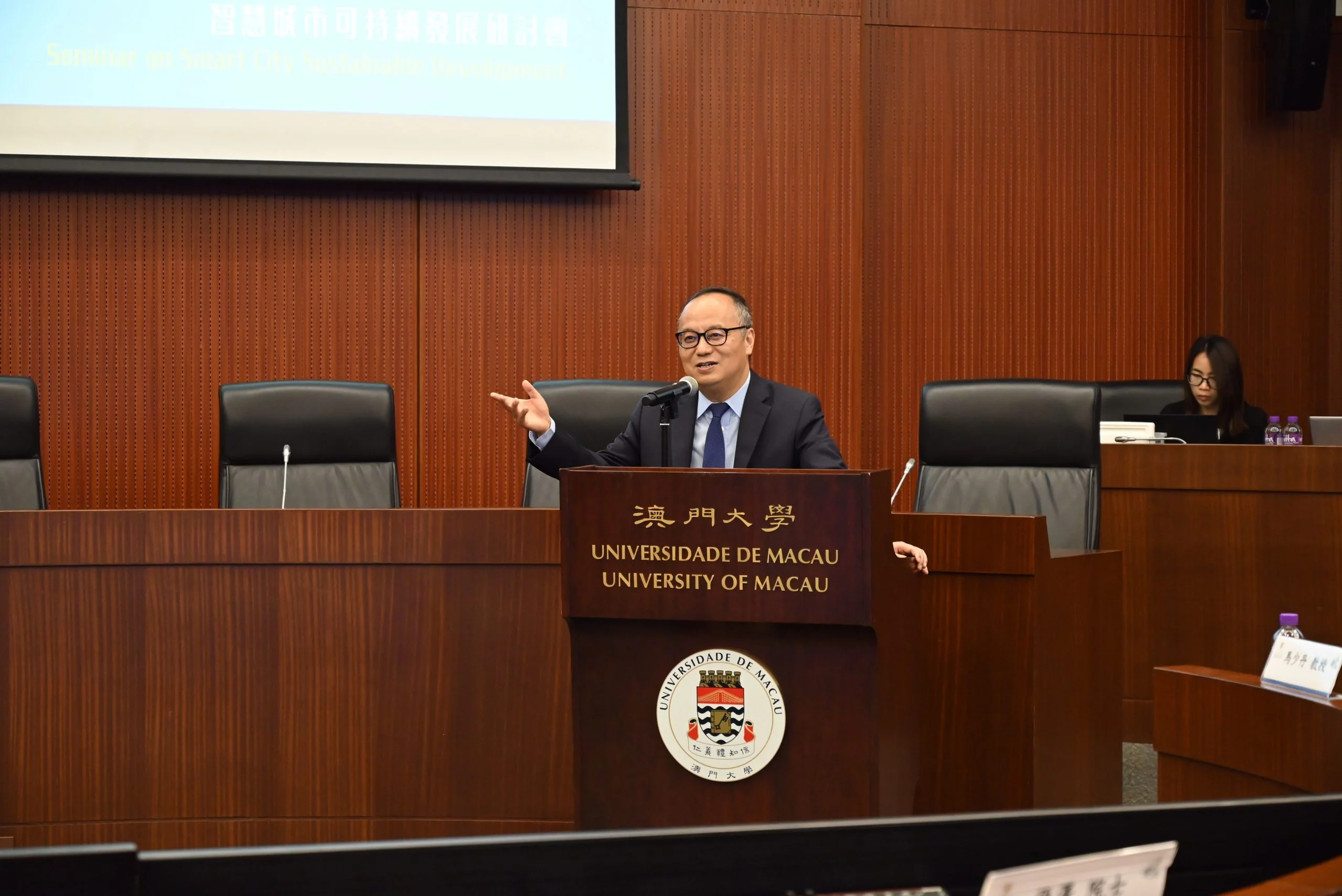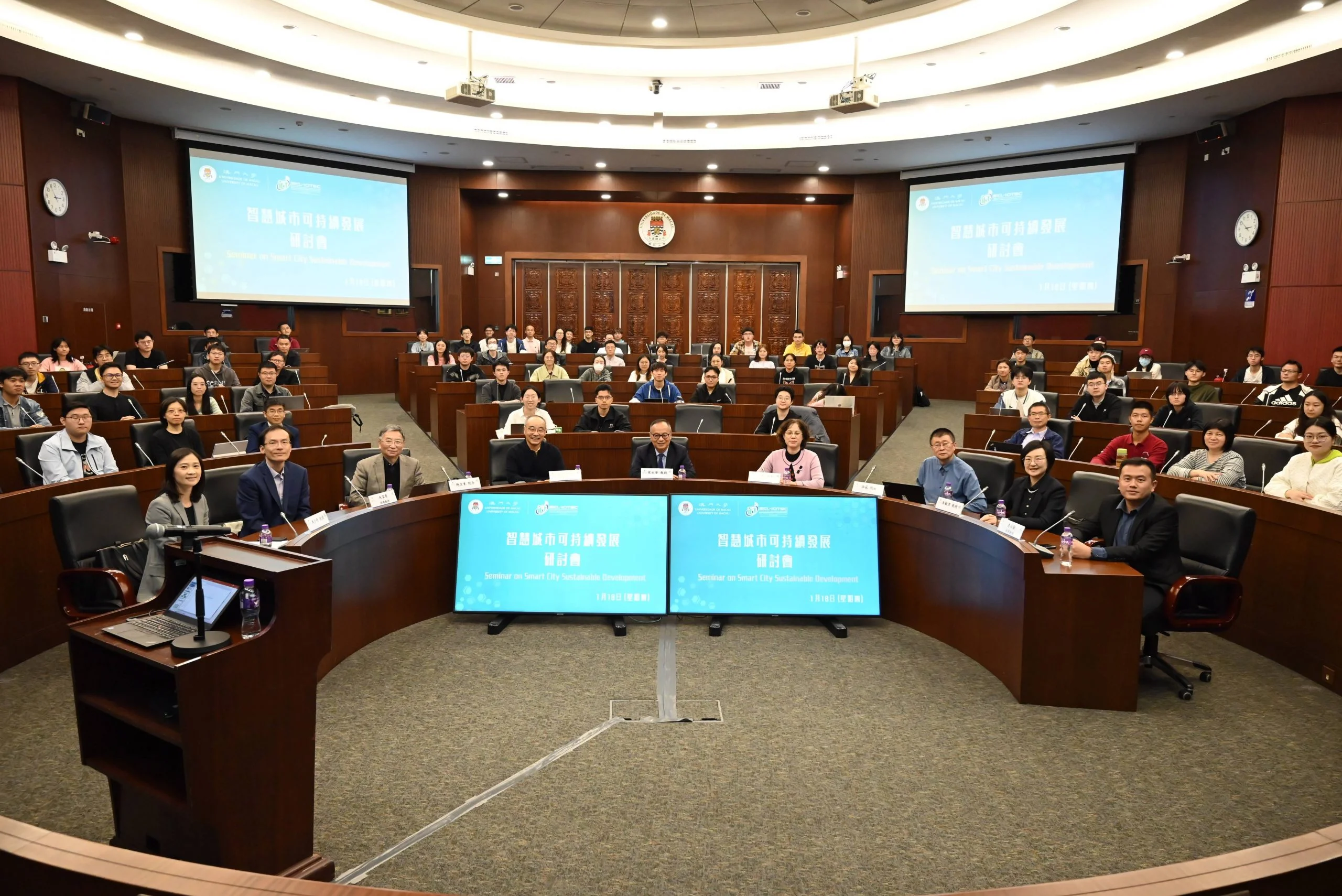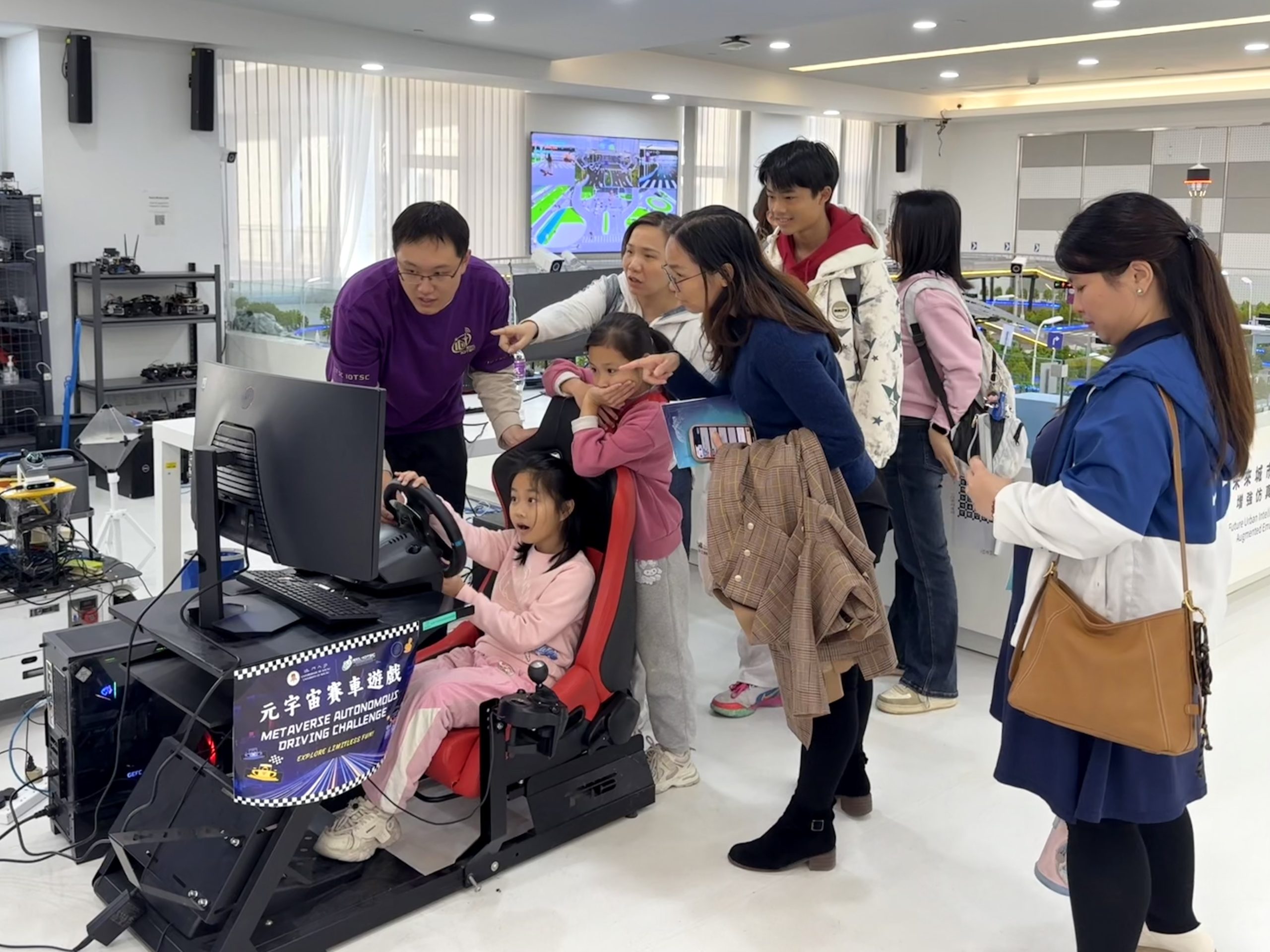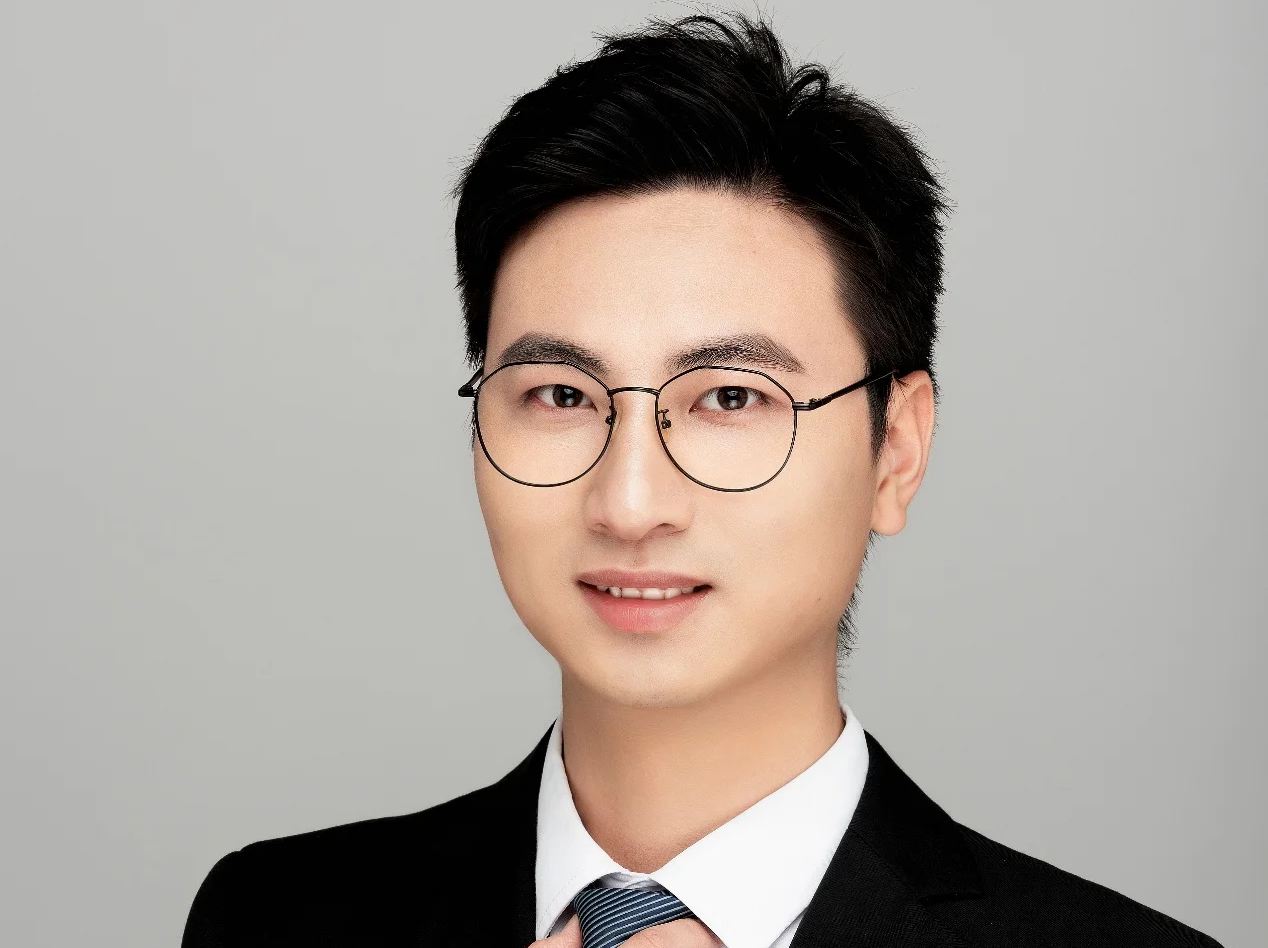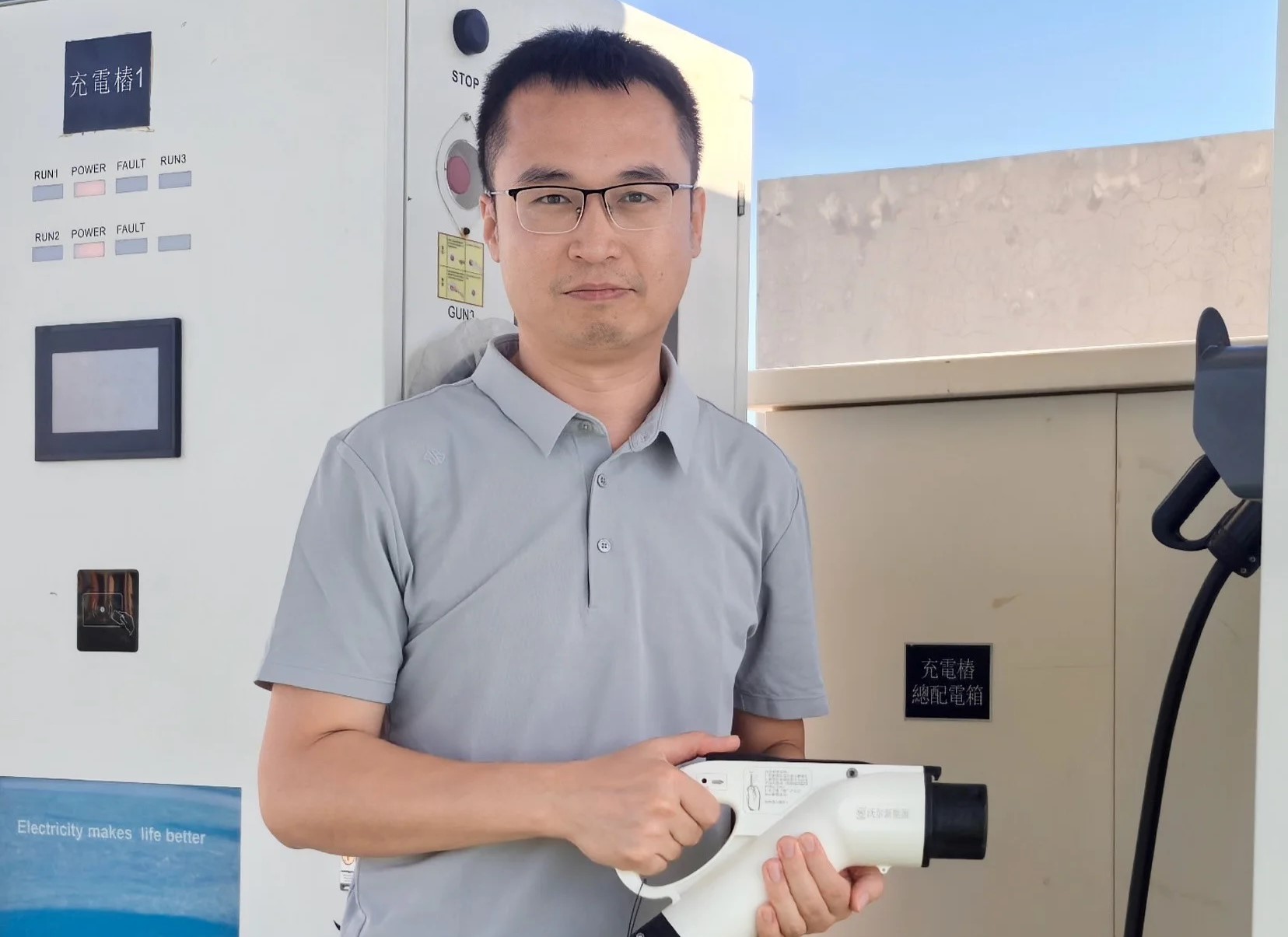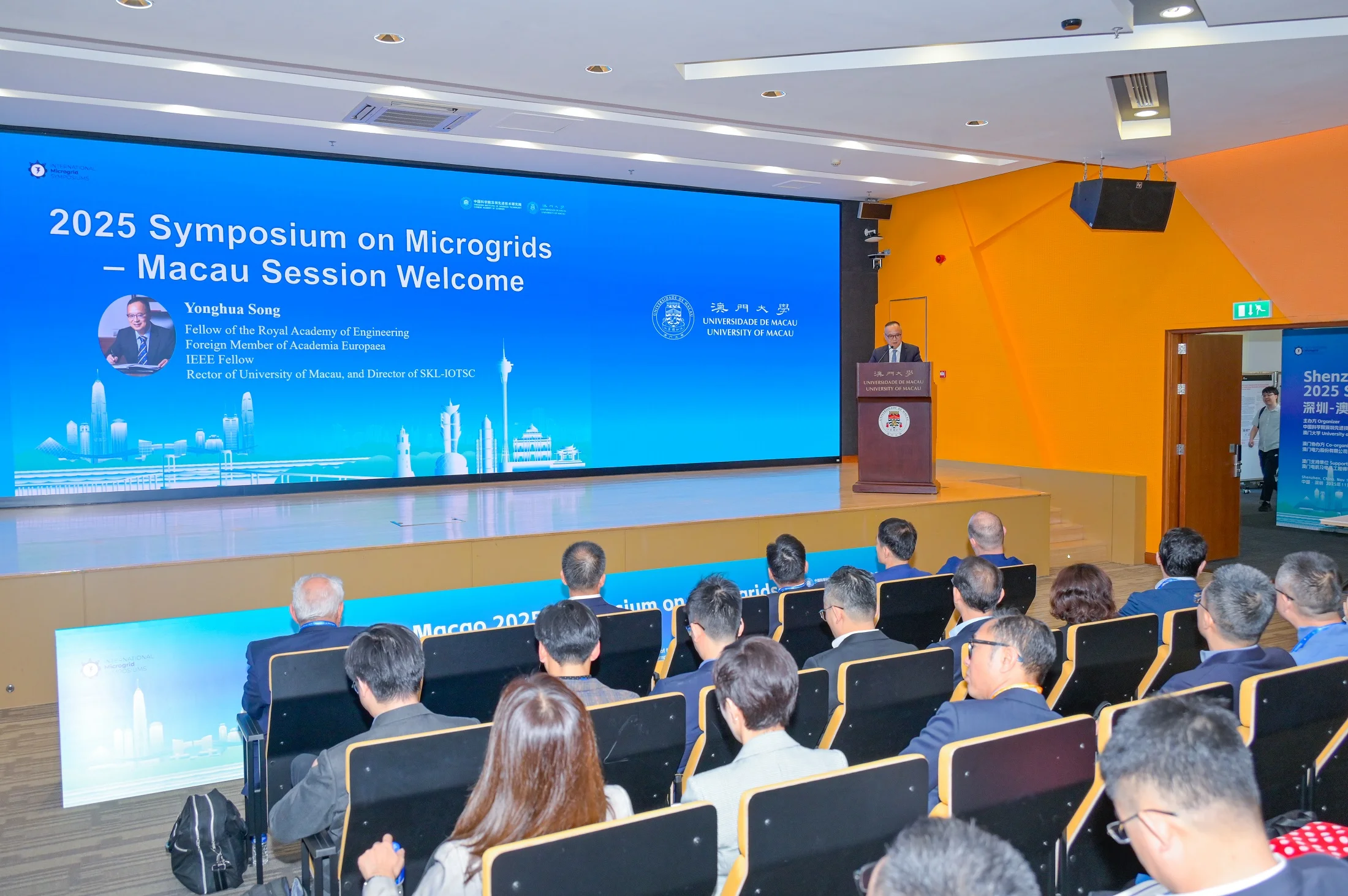The State Key Laboratory of Internet of Things for Smart City (SKL-IOTSC) of the University of Macau (UM) held the Smart City Sustainable Development Seminar today (18 January). The seminar brought together academicians, experts, and scholars to discuss key scientific issues related to the sustainable development of smart cities. It also aimed to combine interdisciplinary and cutting-edge theories and technologies to enhance the sustainability of smart cities, and to provide robust technological support for the sustainable development strategy of the Guangdong-Hong Kong-Macao Greater Bay Area and the country as a whole. Yonghua Song, rector of UM and director of SKL-IOTSC, and Zhang Ze, member of the Chinese Academy of Sciences (CAS) and professor in the School of Materials Science and Engineering at Zhejiang University, delivered a speech respectively. Song pointed out that the challenges posed by urbanisation, such as traffic congestion, environmental pollution, and public safety, require close cooperation between governments and various sectors of society in both policy and technology in order to promote smart city development. Zhang said that UM has a unique advantage in student training and has the capability to integrate technologies from diverse disciplines to address challenges in smart city development, adding that the seminar enabled experts and scholars to provide suggestions for smart city research.
During the seminar, several academicians and experts shared the results of their latest research, including Li Hui, member of CAS and professor in the Key Laboratory of Structures Dynamic Behavior and Control of the Ministry of Education at Harbin Institute of Technology; Chen Lidong, member of CAS and professor in the State Key Laboratory of High Performance Ceramics and Superfine Microstructure, Shanghai Institute of Ceramics of CAS; Zhang Di, member of CAS and professor in the State Key Laboratory of Metal Matrix Composites at Shanghai Jiao Tong University; Yuen Ka Veng, distinguished professor at UM; and Hui Hongxun, assistant professor at UM.



